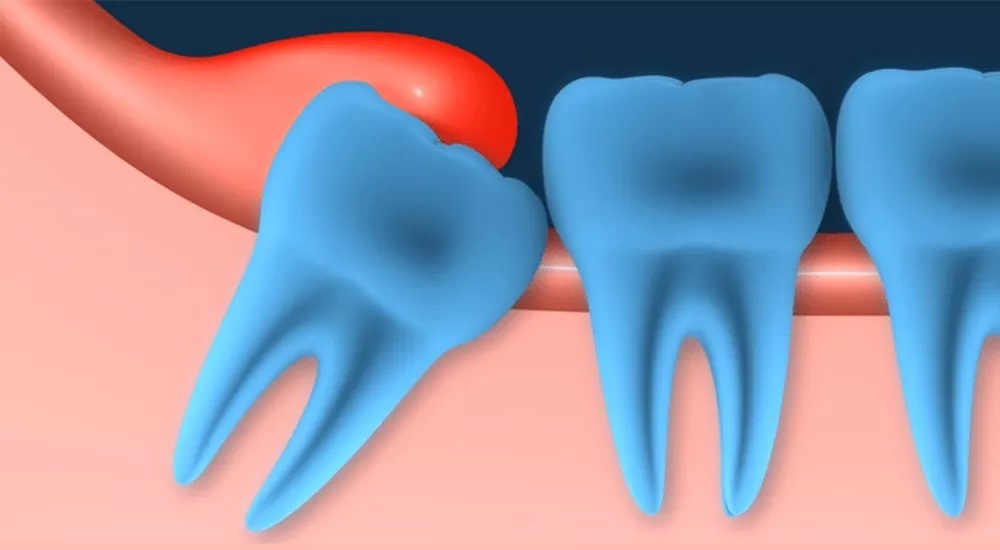Getting your wisdom teeth removed is a common dental procedure that many people undergo during their late teens or early adulthood. Wisdom teeth, also known as third molars, often need to be removed due to various reasons such as impaction, overcrowding, or potential dental problems they may cause in the future. If you’re considering or have been advised to get your wisdom teeth removed, it’s essential to understand what this process entails and what you need to do to prepare for it. In this article, we’ll discuss everything you need to know about getting your wisdom teeth removed, from the initial consultation to post-operative care.
What Do You Need to Get Your Wisdom Teeth Removed
1. Consultation with a Dentist or Oral Surgeon
The first step in getting your wisdom teeth removed is to schedule a consultation with a dentist or oral surgeon. During this appointment, the dental professional will examine your mouth and take X-rays to assess the position of your wisdom teeth, their growth pattern, and any potential issues they may be causing. Based on this evaluation, they will determine whether wisdom tooth removal is necessary and develop a treatment plan tailored to your specific needs.
SEE ALSO: 8 Reasons for Infection After Wisdom Teeth Removal
2. Pre-operative Instructions
Once it’s confirmed that you need to have your wisdom teeth removed, your dentist or oral surgeon will provide you with pre-operative instructions to follow before the procedure. These instructions may include:
Avoiding food and drink for a certain period before the surgery, typically 6 to 8 hours, to ensure your stomach is empty.
Arranging for transportation to and from the dental office or surgical center, as you may not be able to drive yourself home after the procedure due to the effects of anesthesia.
Taking any prescribed medications or antibiotics as directed by your dental provider to reduce the risk of infection and ensure a smooth recovery.
Informing your dentist about any medications you currently take, including over-the-counter drugs and supplements, as they may need to be adjusted before the surgery.
3. Anesthesia Options
Wisdom tooth removal is often performed under local anesthesia, which numbs the area around the tooth being extracted.
However, depending on the complexity of the case or your personal preference, other anesthesia options may be available, including:
Sedation anesthesia: Administered through an IV line, sedation anesthesia helps you relax and may make you less aware of the procedure. You may remain awake but feel drowsy and comfortable throughout.
General anesthesia: In some cases, especially for complex or multiple extractions, general anesthesia may be used to put you into a state of unconsciousness during the procedure. This requires specialized monitoring and should be discussed thoroughly with your oral surgeon beforehand.
4. The Surgical Procedure
On the day of the surgery, you’ll arrive at the dental office or surgical center at the scheduled time. The procedure typically follows these steps:
Anesthesia administration: The chosen anesthesia is administered to ensure your comfort during the surgery.
Tooth extraction: Using specialized instruments, the dentist or oral surgeon will carefully remove the wisdom teeth from their sockets in the jawbone. In some cases, the teeth may need to be sectioned into smaller pieces for easier extraction.
Wound closure: Once the teeth are removed, the surgical site may be sutured to promote healing and prevent excessive bleeding. Dissolvable sutures are commonly used for this purpose.
5. Post-operative Care
After the surgery, you’ll be given detailed post-operative instructions to follow for a smooth recovery. These instructions may include:
Managing pain and swelling: Over-the-counter or prescription pain medication may be recommended to manage discomfort, along with cold compresses to reduce swelling.
Eating soft foods: Stick to a diet of soft, easy-to-chew foods for the first few days following surgery to avoid putting undue pressure on the surgical site.
Oral hygiene: Gentle brushing and rinsing with a saltwater solution can help keep the surgical area clean and promote healing. Avoid vigorous rinsing or spitting, especially in the first 24 hours.
Follow-up appointments: Schedule a follow-up visit with your dentist or oral surgeon to monitor your healing progress and remove any sutures if necessary.
6. Be aware of potential complications
While wisdom tooth removal is generally safe, there are potential complications that may arise, including:
Infection: Proper oral hygiene and following post-operative care instructions can help minimize the risk of infection.
Dry socket: A painful condition where the blood clot at the surgical site dislodges prematurely, exposing the underlying bone. Avoiding smoking and following post-operative instructions can reduce the risk of dry socket.
Nerve damage: Rarely, nearby nerves may be affected during the extraction process, leading to temporary or permanent numbness or tingling in the lips, tongue, or chin.
Conclusion
Getting your wisdom teeth removed is a routine dental procedure that can improve your oral health and prevent future dental problems. By following the steps outlined in this article, including scheduling a consultation, following pre-operative instructions, choosing the right anesthesia option, and adhering to post-operative care guidelines, you can ensure a successful and comfortable wisdom tooth removal experience. If you have any concerns or questions about the procedure, don’t hesitate to discuss them with your dental provider for personalized guidance and support.

